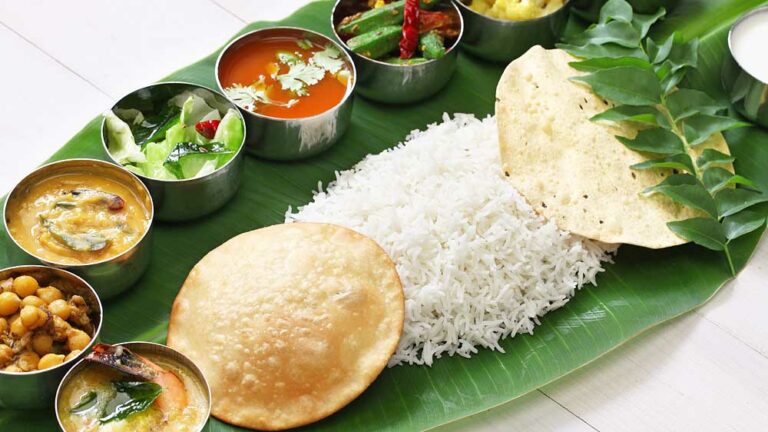Introduction: Indian cuisine and dietary restrictions
Indian cuisine is renowned for its rich flavors and diverse range of dishes, but it is also important to acknowledge the dietary restrictions and considerations that are commonly observed in Indian culture. From vegetarianism to religious restrictions, there are a variety of factors that can influence the food choices and ingredients used in Indian cuisine.
Whether you are looking to explore traditional Indian dishes or seeking to accommodate specific dietary needs, it is important to understand the different types of dietary restrictions and considerations that can impact Indian cuisine.
Common dietary restrictions in Indian cuisine
One of the most common dietary restrictions in Indian cuisine is the avoidance of beef and pork products. This is largely due to religious and cultural factors, as cows are considered sacred in Hinduism and pork is prohibited in Islam.
In addition to meat restrictions, many Indian dishes also include dairy products such as ghee, paneer, and yogurt. As a result, individuals who follow a vegan or lactose-free diet may need to seek out alternative options or modify their dishes accordingly.
Vegetarianism in Indian cuisine
Vegetarianism has a long history in Indian culture, and it is estimated that up to 30% of the Indian population follows a vegetarian diet. This is due in part to religious beliefs, such as the Hindu concept of ahimsa (non-violence), as well as practical considerations such as the availability of meat in certain regions.
As a result, vegetarian dishes are a staple of Indian cuisine, with options ranging from hearty dal and vegetable curries to lighter snacks such as samosas and pakoras. However, it is important to note that not all Indian dishes are vegetarian, and individuals with dietary restrictions should always check with their server or chef to ensure that their meal is suitable.
Hindu dietary restrictions in Indian cuisine
Hinduism has a number of dietary restrictions and guidelines, with some of the most well-known being the avoidance of beef and the use of ghee instead of butter. In addition, certain Hindu festivals and rituals may require specific food preparations and offerings.
For example, during the nine-day festival of Navratri, many Hindus follow a strict vegetarian diet and avoid grains, onion, and garlic. Similarly, during the festival of Holi, certain sweets and snacks are traditionally prepared to mark the occasion.
Jainism dietary restrictions in Indian cuisine
Jainism is a religion that emphasizes non-violence and compassion, and as such, many Jains follow a strict vegetarian diet. In addition, Jains also avoid root vegetables such as potatoes, carrots, and onions, as these plants are believed to be home to a large number of microorganisms.
This can make dining out a challenge for Jains, as many Indian dishes contain onion and garlic. However, there are a number of Jain-friendly restaurants and food options available, and many chefs are willing to modify dishes to accommodate dietary restrictions.
Conclusion: Navigating dietary restrictions in Indian cuisine
Whether you are following a specific dietary plan or seeking to explore the rich flavors and cultural traditions of Indian cuisine, it is important to be aware of the different types of dietary restrictions and considerations that can impact food choices. By understanding the different types of restrictions and seeking out appropriate options, individuals can enjoy delicious and satisfying meals that meet their dietary needs.

